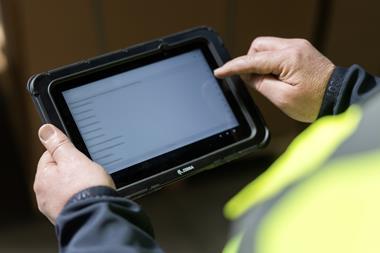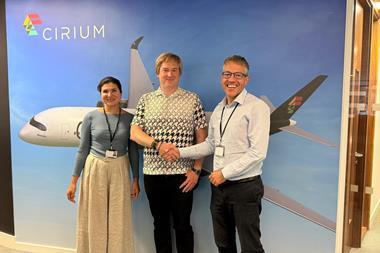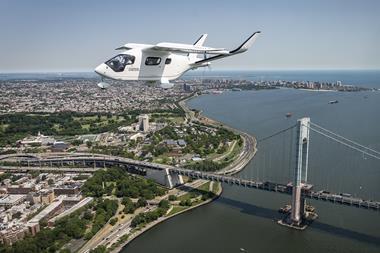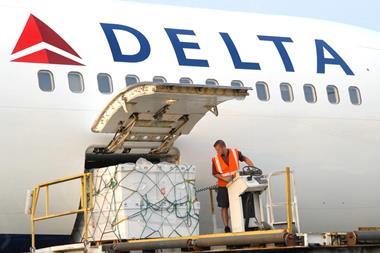CargoTech has been established to accelerate digitalisation in the air cargo industry, discovers Damian Brett.
Earlier this year, GSSA ECS Group and flight optimisation technology company Wiremind announced a new project: The two companies – through ECS’ Cargo Digital Factory and Wiremind Cargo – would launch standalone company CargoTech.
ECS Group chief strategy and digital officer Cedric Millet and Wiremind chief executive Nathanaël de Tarade say the new company aims to broaden the types of air cargo technology that can be offered by a single company.
Existing Cargo Digital Factory products such as its Apollo business intelligence and reporting system; Pathfinder track and trace solution; and Quantum pricing support system will be combined with Wiremind Cargo’s shipment volume evaluation and flight planning system SkyPallet, to form the basis of CargoTech’s product portfolio.
“There are many companies that have done bits and pieces of automation and digital solutions for the cargo industry, but we've never really had a conglomerate that has put resources together to try to digitalise as much as possible,” explains Millet.
“There are local initiatives that exist but there isn't a single entity that is looking at it from a holistic view point.”
He adds: “What we are trying to build is an ecosystem of companies that will jointly and holistically develop a strategy to digitalise whatever can be digitalised.”
Millet explains that CargoTech hopes to add further companies to broaden the products that can be offered.
A third partner is set to be announced in the coming months, he says, although declines to reveal the name of the company.
“We believe that there are a number of companies that have very strong expertise in their domain,” Millet says.
He reiterates: “Instead of re-inventing the wheel, it is much easier and much faster to put together those different companies and develop a road map - decided together so there is no overlap between the different companies - with one single objective: to digitalise whatever can be digitalised.”
Companies wanting to take part in the project will need to bring added value, he says.
“If it is a company that only wants to do venture capital and doesn't have any added value in terms of product development, sales or adoption, it doesn't bring any value so that is not what we want.”
“Of course we want to make money but the main objective is to have complementary companies working on their product lines with sales synergies. If you are trying to put together companies that are competing against each other it doesn't make any sense.”

De Tarade adds that another advantage of joining the project for Wiremind, which covers a range of transport sectors, is the expertise that ECS’ Cargo Digital Factory can offer in air cargo.
“Combining with [Cargo Digital Factory’s] expert knowledge - although we have business knowledge as well - and then having a portfolio of products makes each of the modules you are selling stronger.”
Millet adds that having Wiremind’s perspective from outside air cargo is also an advantage.
How CargoTech will work
Millet explains how the new company will operate: “CargoTech is a separate legal entity that is being incorporated in France with shareholders that have put equity into the company.
“CargoTech will then have a shareholding in the different companies that will be working under its umbrella.”
He explains that each of the companies involved in CargoTech will continue to develop new products as well as enhance and maintain the products that they have, all according to the roadmap.
The launch of the new company comes as the air cargo industry has been enjoying a long awaited wave of digitalisation and de Tarade says he expects this trend to continue.
“I don't think the pandemic changed the nature of the needs of air cargo,” he says. “I think it just accelerated something that was already there.
“Before the pandemic, digitalisation was something that they were exploring and, depending on the stakeholder, some had started earlier and some were more advanced.
“But if you look at the industry in general, I feel like digitalisation was something that was at its own pace.
“Then at some point things changed and if you didn't have solutions to offer to your customers they would go elsewhere.
“Generally, that is a good kick starter to get companies to move faster so I think it is more a matter of a change in pace than a change in nature.”
Millet adds that cargo became more important to companies as a result of the pandemic due to supply chain issues.
Also, the loss of passenger volumes heightened the importance of cargo for aviation companies.
“All of a sudden a lot of focus was put on cargo and people realised that it was a very old fashioned industry, that everything was manual.
“Another element that we are starting to see more and more is that there are staff shortages in cargo and the only way you can increase productivity is by digitalising.”















